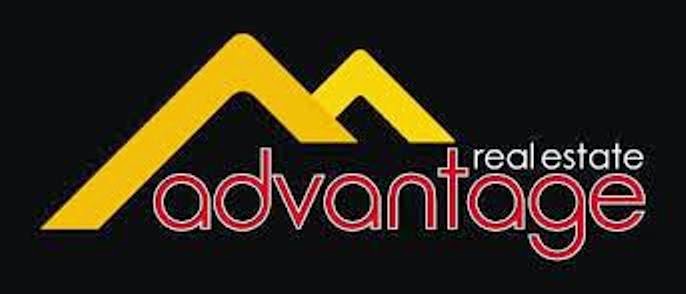*** 5 SURPRISING MAINTENANCE TASKS LANDLORDS AREN'T RESPONSIBLE FOR HANDLING ***
By: Lauren Sieben
** HELP IS A PHONE CALL AWAY **
CJ
@ 909.910.2481
cjadvantage1@gmail.com
ADVANTAGE REAL ESTATE
BRE:01396688
One of the biggest perks of being a renter is that, for the most part, tedious maintenance work and expensive home repairs aren’t your problem. That’s your landlord’s job, right? Right?
Well, not necessarily. In some cases, tenants are in charge of handling routine maintenance—and even some repairs—in their rental units.
“Landlords and property managers are responsible for maintaining any appliances and electrical systems,” says Candice Williams, a Realtor, landlord, and property manager in League City, TX. Landlords are also generally responsible for ensuring the overall safety of the rental property, including making sure your locks work, your alarm systems (if any) are operational, and your unit receives running water.
But these expectations vary from lease to lease. Even if your landlord handles the major repairs, there are plenty of daily duties that could land on your plate.
Before you sign a new lease or re-up your current agreement, take a close look at the fine print and make sure you understand your responsibilities as a tenant. To help cover your bases, we talked with landlords to ask about some of the common maintenance task that renters are responsible for handling.
1. Yardwork and outdoor maintenance
If you scored a big backyard with your rental, you may have also scored a part-time gig as your own personal groundskeeper: Some leases require tenants to maintain the lawn, sidewalk, and other outdoor spaces.
“Tenants are often surprised that the yardwork is their responsibility and that it's not just mowing the lawn,” Williams says. “It can also include watering the yard, trimming bushes, fertilizing, and maintaining the landscaping. Some residential landlords will handle the lawn, but the cost is built into the monthly rent.”
If you live in a cold climate, snow removal could also be your responsibility. Some landlords even expect tenants to clean the gutters themselves or deal with pest removal. When in doubt, refer to your lease or ask your landlord to clarify who handles what.
2. Minor plumbing issues
Chances are, your landlord or property manager is responsible for keeping your plumbing systems running, which includes leak prevention and repairs, according to Paul Sian, a real estate attorney and property manager in Cincinnati.
But “plumbing clogs may be an exception, depending on how the lease is written,” Sian says. “A simple toilet clog? The tenant can handle.”
Check your lease to confirm whose job it is to deal with the occasional plumbing mishap. (Either way, it never hurts to keep a plunger available.)
Sian also reminds tenants to do their part to prevent clogs by never pouring grease down sink drains or dumping food in a sink without a garbage disposal. If you cause a plumbing issue in your unit, you could be held responsible for the cost of repairs. Which leads us to...
3. Repairs—if the damage was your fault
Generally, landlords are responsible for maintaining your place’s major appliances and systems—think air conditioning and water heaters—and replacing those systems after they’ve endured normal wear and tear and reached the end of their natural lives.
But if you or one of your guests (or one of your pets) destroys something, that’s another story.
“I had a tenant that was playing baseball in the backyard and hit the ball through the house window,” Williams recalls. “They were responsible for damages. ... However, if the window was damaged during a storm, the landlord would have been responsible.”
Check your lease to make sure your landlord takes responsibility for repairing damages caused by situations out of your control, like extreme weather.
4. Unauthorized service calls
If you run into a problem in your unit and decide to take things into your own hands by calling the repair person yourself, you could be on the hook for the bill.
Clara Nicolosi, a real estate broker and property manager in Hot Springs Village, AR, says that’s the case for tenants in the 200 properties she manages. She advises landlords to personally handle calls with electricians, plumbers, and other experts when tenants request a repair.
“If the problem is legit, the homeowner will be responsible for the bill,” Nicolosi says. “If there is not a problem or the problem was caused by neglect, the tenant will be responsible for the bill.”
To avoid miscommunications and surprise bills, make sure you have your landlord’s blessing before you get on the phone to request a repair.
5. Cleaning up before the next tenant
When the time comes to move on from your rental unit, don’t assume you can just hand over the keys and walk away. Many landlords expect tenants to clean up before they roll out—and if you don’t, you could risk losing part—or all—of your security deposit.
The specifics of your responsibilities should be outlined in your lease, but common expectations for outgoing tenants include cleaning the oven, sweeping the floors, having carpets cleaned professionally (you might be asked to show a receipt as proof), and repairing any damage to the walls.
“I see a lot of tenants hang beautiful artwork on the wall, which makes the house feel like a home,” Williams says. “But you're responsible for filling all holes and making sure the paint matches when you remove the artwork.”
A good rule of thumb is that if you altered anything in the unit, it’s your duty to restore it to the way it was when you first moved in.


No comments:
Post a Comment